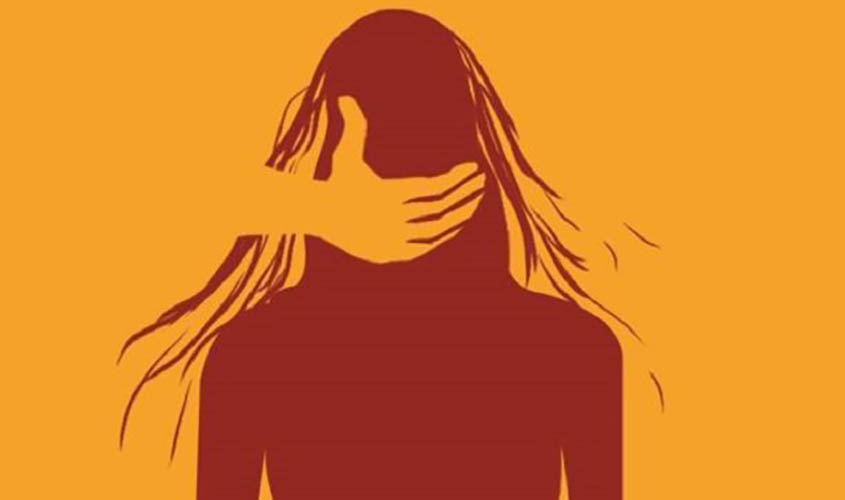Instead of tilting at windmills and crusading against porn, focus should be on improving law and order.
Our politicians couldn’t love moralising more. They incessantly endeavour to improve our morals—even when urgent action is required to check something as unconscionable as child rape. So, we have this gem from Madhya Pradesh Home Minister Bhupendra Singh Thakur: ban pornography to stop rape.
“A study conducted by the state’s Home Department revealed that pornography is corroding childhood. Boys and girls are easily influenced by pornography and have easy access to such erotic sites and materials. This is provoking crimes like rape and sexual assault,” he told the media last week. While nobody can dispute the baleful effects of pornography on childhood and its influence on younger people, the way out is not outright proscription. And the cause-and-effect relationship between pornography and rape is simply non-existent.
There are no numbers available as to how many people watch pornography in India, but the Norton Wi-Fi Risk Report by Symantec in 2017 gave some idea. The global study had more than 1,000 respondents from India. It said that “more than one in three Indians admit to using public WiFi to watch adult content”. Even if we discount the number of hypocrites from the sample, and also assume that the percentage doesn’t increase while using private connection, the number we get after extrapolation is huge.
For the total number of Internet users is hovering around 50 crore, one-third of which is about 16 crore. Even if we assume that only half of them are male, surely there are not eight crore rapists in our country. In fact, there is at least one study in the West that has shown that legalisation of pornography actually reduced the incidences of rape and sexual violence.
Therefore, there is no causality involved between pornography and rape.
Now pornography involving consenting adults may offend the feelings of social conservatives like Singh, but at the end of the day it is a victimless activity; and criminalisation of any such activity is downright illiberal and anti-democratic. Dealing with this issue two years ago, a Supreme Court Bench headed by the then Chief Justice H.L. Dattu had said, “Can we pass an interim order directing blocking of all adult websites? And let us keep in mind the possible contention of a person who could ask what crime have I committed by browsing adult websites in private within the four walls of my house. Could he not argue about his right to freedom to do something within the four walls of his house without violating any law?”
It is interesting to note here that both feminists and Rightists, howsoever they may despise each other, agree on the proscription of pornography. Feminists use familiar phraseology and expressions in their tirade against pornography: it objectifies women (but not men!), it harms and degrades women (again not men) during production, misogyny, patriarchy, et al. All this is hogwash.
For women in pornography opt for their career; in fact, many of them decided to become porn-stars well into their forties. They own and operate websites. By no stretch of imagination can Sunny Leone said to be an oppressed woman. At any rate, if coercion is involved in any case, it rather than pornography should be acted against.
Similarly, much is made out of the harm caused to women during production. But then there are always occupational hazards—in any field. Modelling, cinema, sports, police, military, fire-fighting, reporting—in any occupation there are attendant perils.
The Rightists’ case against pornography also stands on equally shaky foundations—invasion of decadent Western culture, decline in values, corruption of youth, etc. Their fears are fictitious, for the West is not decadent in the first place; and, second, we don’t just get blue films but also ideas, ideals, philosophy, arts, culture, science and technology from the West.
As for decline in values and corruption of youth, there is a great deal of in situ rot which is the real culprit—the corroded political morality, the rickety administrative structures, the deteriorating law and order situation, and the ubiquitous corruption. The situation is similar in most of the country, but it is particularly bad in the state Singh represents.
Mr Singh, you can’t have the Vyapam or recruitment scam leading to the death of dozens of people in mysterious circumstances and a thriving sand mafia killing cops and journalists in your state, and realistically expect everybody to behave legally and morally. The proliferation of rape—or, for that matter, any other criminal activity—is indirectly related to the proficiency of the law-enforcement personnel. If the officers appointed are suboptimal, enjoying the perks of office (and good things in life) not because of their competence but because of their crooked ways and the blessings of their political masters, you can’t expect them to make the lives of girls and women safer.
Therefore, instead of tilting at windmills and crusading against porn, the Madhya Pradesh Home Minister should strive to improve law and order in his state. Moral policing is no substitute for regular policing.

